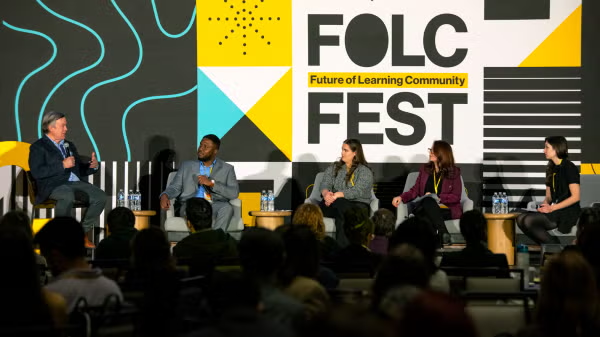It can be tough to be a Native American in mainstream society.
It’s true for students away from their home communities for the first time. They’re underrepresented and surrounded by people who aren’t familiar with their traditions, culture or history.
And it’s true for “urban Indians,” an increasing population of Native people who live in cities, who often report feeling unseen or stereotyped.
“This notion of visibility and invisibility is important,” said Bryan McKinley Jones Brayboy, President’s Professor, director of the Center for Indian Education and ASU’s special adviser to the president on American Indian Affairs. “Sometimes invisibility comes in the form of unfounded and unsubstantiated myths.”
To help recognize the experiences of the more than 2,600 Indigenous students at ASU — and to honor the close of Native American Heritage Month — a group of American Indian students and faculty gathered to answer the questions and bust the stereotypes they face most often when interacting with non-Natives.
Video produced and edited by Deanna Dent, ASU Now
“People may say, ‘Oh, all Natives live like this.’ But, we are like anyone else: There is both remarkable variability in our experiences and some shared experiences. In the end, stereotypes hurt everyone.”
Oftentimes, Native people in mainstream settings find themselves functioning as representatives for a diverse population of more than 5 million people from more than 560 distinct tribes across the U.S.
Megan Tom, a fourth-year Navajo student from Cameron, Arizona, described it as an unfair burden, saying during a recent interview that “it’s exhausting giving Native 101 to everyone.”
The students and faculty share some of the more common questions they’re asked by non-Natives in an effort to create connections and understanding.
“As much as any other research intensive campus in the U.S., ASU is committed to helping everyone appreciate the unique, important modern-day experiences of Native peoples in Arizona, the U.S. and the world,” Brayboy said. “This video continues this vital conversation and situates ASU as a world-class educational institution that honors its place and the Native peoples of Arizona.”
More Sun Devil community

How 2 women who call each other 'sis' raised ASU running back Kyson Brown
The Lancaster High School graduation ceremony has just ended, and running back Kyson Brown poses for a photo with the two most important people in his life. ASU…

FOLC Fest 2025 explores Principled Innovation, leadership and learning at ASU
"Principled Innovation is about using our creativity, knowledge and resources to make decisions that ultimately benefit humanity — not just in the short term, but for generations to come."That's what…

These Sun Devils are inspiring the next generation of female athletes
This year, Women's History Month is celebrating the theme “Moving Forward Together! Women Educating and Inspiring Generations.”Women in sports inspire fans of all ages through their accomplishments…


